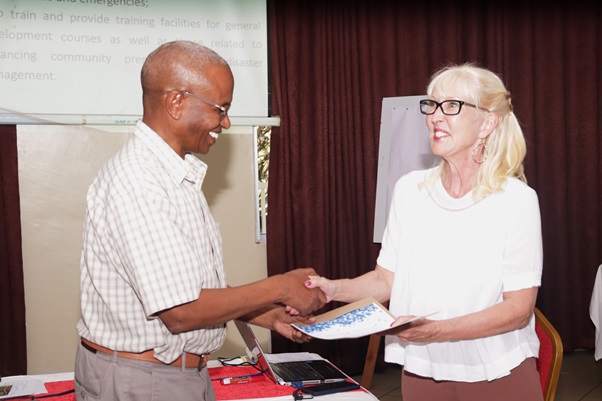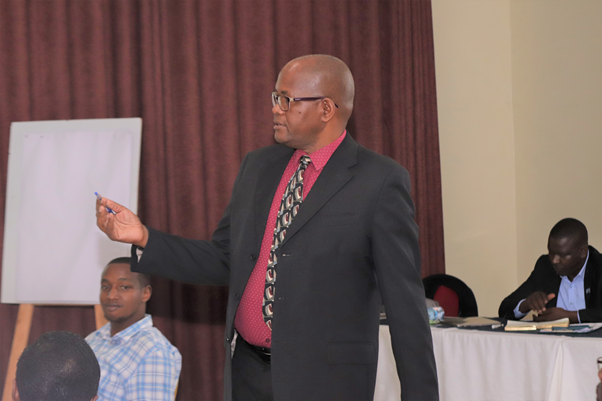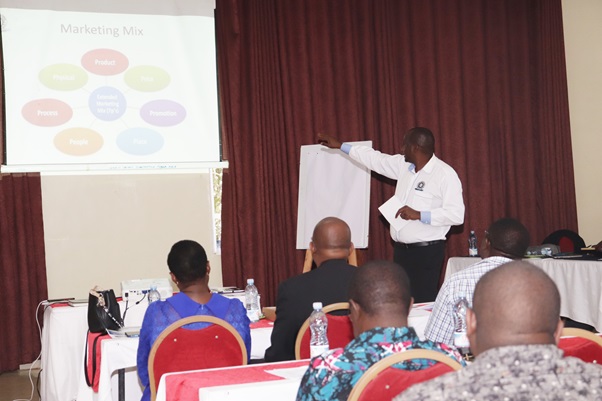The Chairperson of the University Council- Dr. Pamela Sitienei and Ms. Maureen Ellis from IFAPA launching the Biosafety and Biosecurity program.
In an effort to bridge the gap in Global Health Security, Masinde Muliro University of Science and Technology (MMUST), on 10 May 2024, unveiled a Bachelor’s degree in Biosafety and Biosecurity. This academic program is designed to meet the growing demand for experts to address global health preparedness and response. The program is the first of its kind globally and has greater potential as it has attracted students from Kenya and beyond.
The Department of Medical Laboratory Sciences designed and developed the program as per the Commission for University Education (CUE) Standards and Guidelines 2014. Courtesy of collaborative efforts with the International Federation of Biosafety Associations (IFBA), the Department admitted the first batch of 21 students in January 2024.
Speaking during the program's launch, the Chairperson of the University Council- Dr. Pamela Sitienei assured that this program will be successful as MMUST has previously effectively rolled out various unique academic programs, including Optometry and Paramedicine.
“The launch of this program aligns with our overall goal of producing quality professionals that will not only make an impact in the country, but also the entire continent. We have invested in this program to ensure that we train highly skilled biosafety and biosecurity individuals equipped with skills, and knowledge for bolstering the global biosafety and biosecurity workforce,” stated Dr. Sitienei.
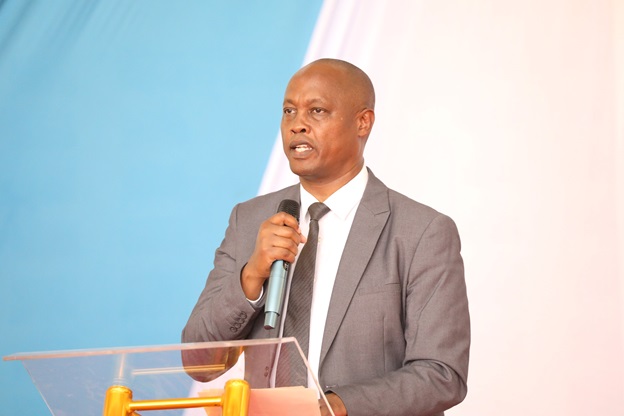
The Ag. Vice Chancellor- Prof. Charles Mutai speaking during the launch.
The Ag. Vice Chancellor- Prof. Charles Mutai reiterated that MMUST is the trailblazing University in Africa that is defining career pathways for this program, adding that this unique program is intended to produce professionals who will address environmental conservation and security. “As the only University offering this program in Kenya, MMUST will be the first University to produce professionals in this field,” said Prof. Mutai.
Commenting on the establishment of the program, the Registrar (Academic Affairs)- Prof. Judah Ndiku pointed out that this programme has been published with the Kenya Universities and Colleges Central Placement Services (KUCCPS) and MMUST is set to receive the first cohort of KUCCPS placement in the 2024/25 academic year.
“The programme subscribes to all the Commission for University Education (CUE) programme standards and is accredited,” assured Prof. Ndiku.
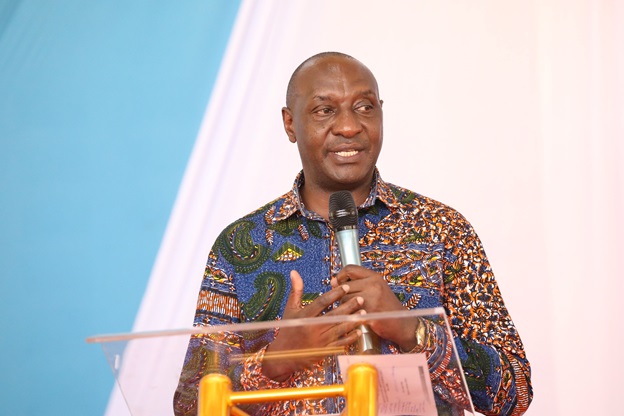
The Registrar (Academic Affairs)- Prof. Judah Ndiku making his remarks during the program launch.
Defining Biosafety and Biosecurity career path within the higher education system is key to filling the gap of professionals in this field. The establishment of this new Undergraduate Degree Program has put MMUST on the forefront as the champions in addressing the global shortage of Biosafety and Biosecurity professionals through education.
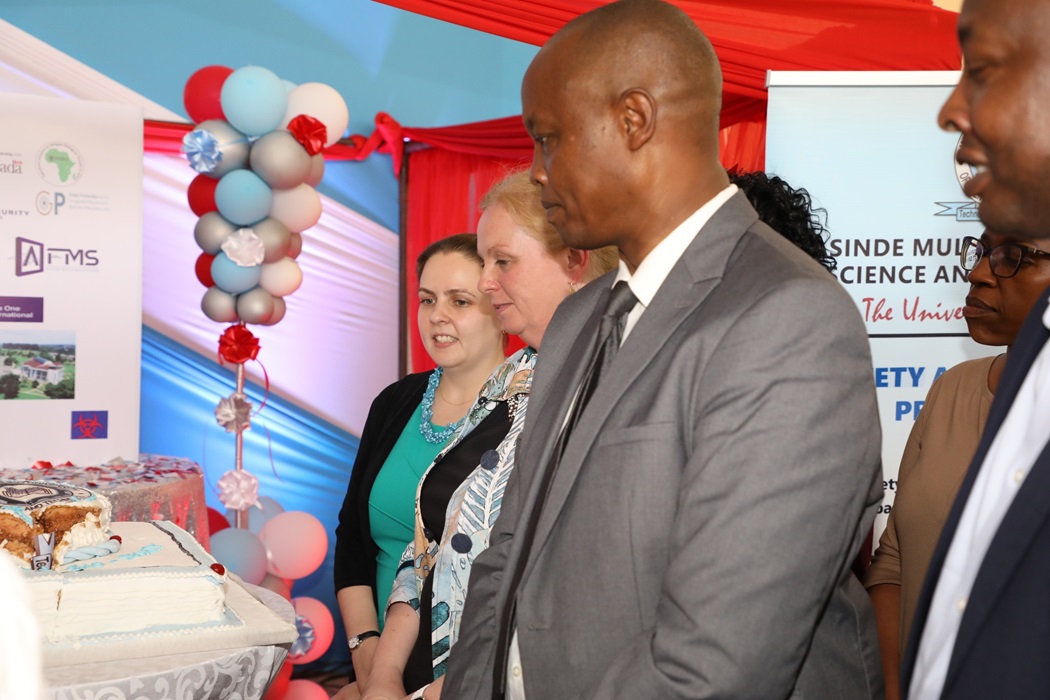

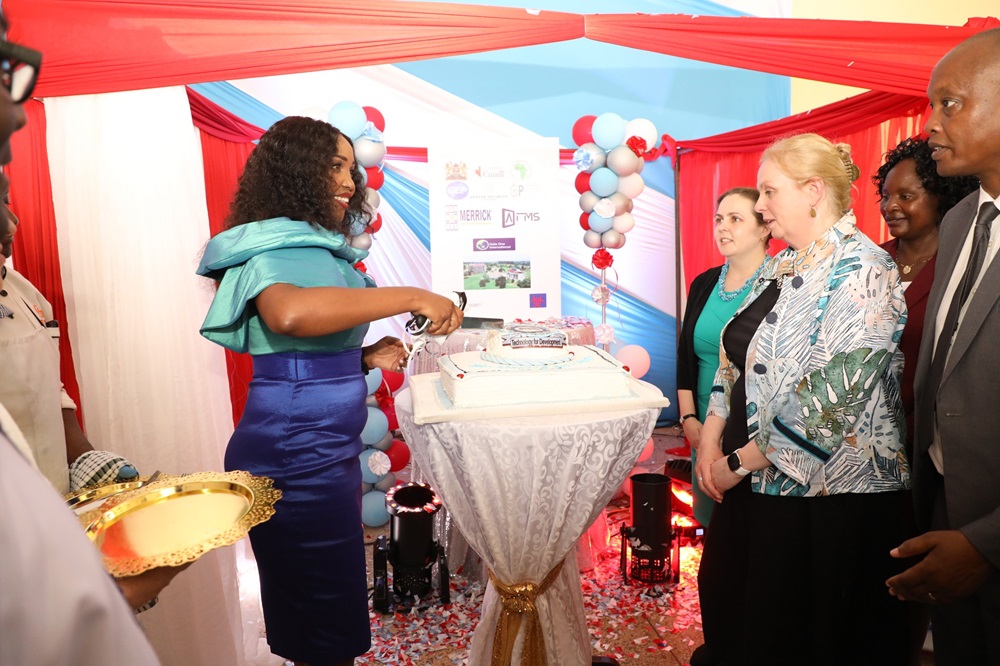
By Linet Owuor
Photos by Shiundu Masafu



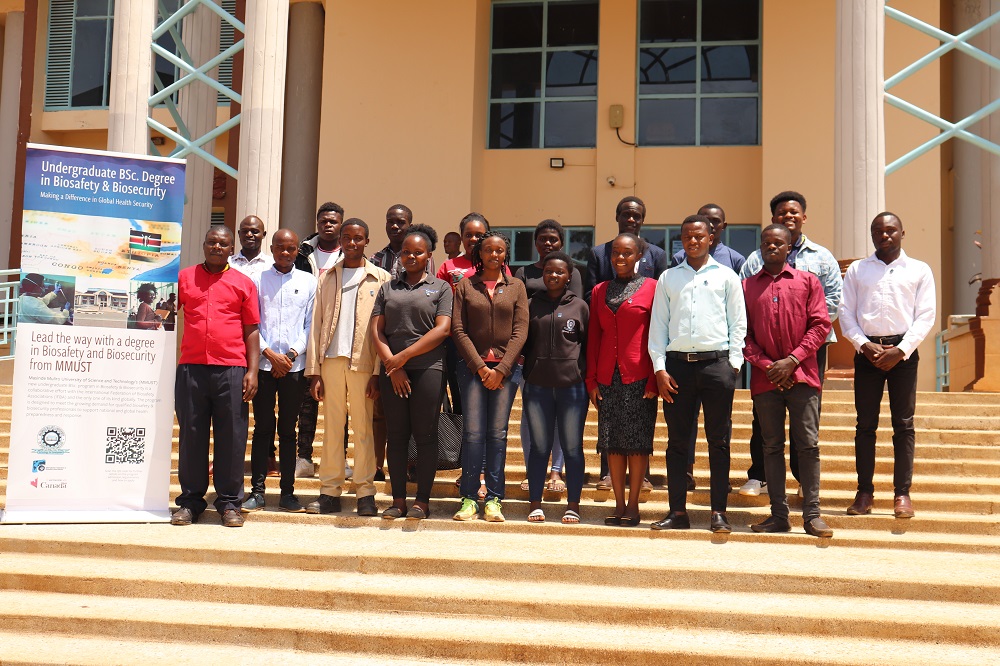
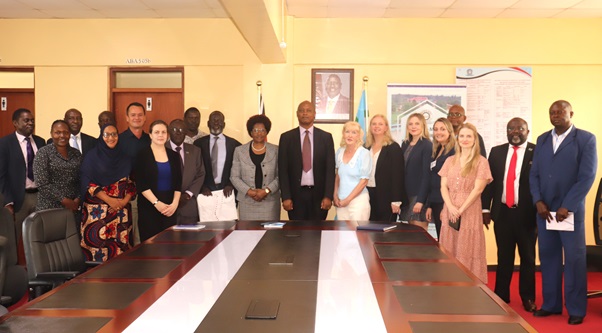
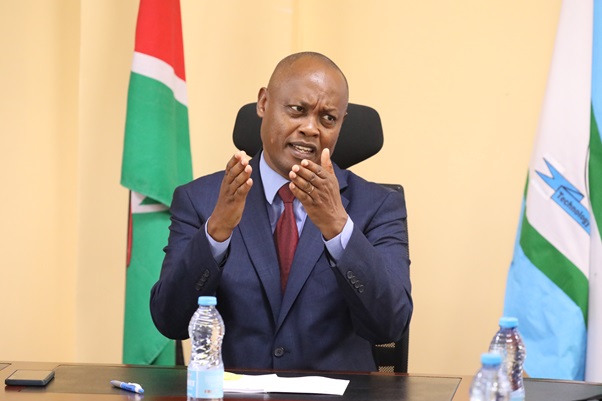
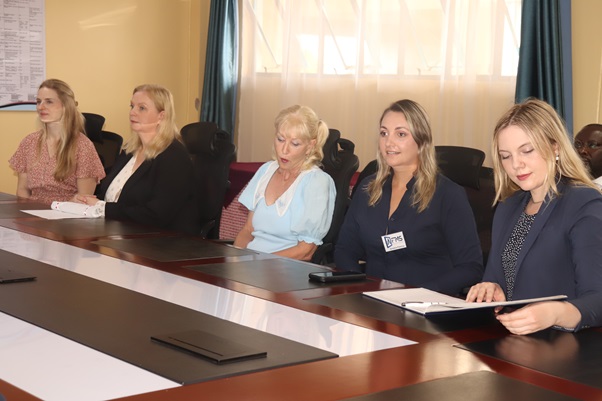
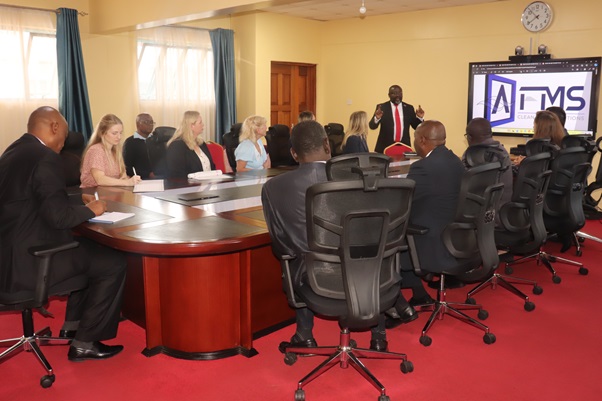
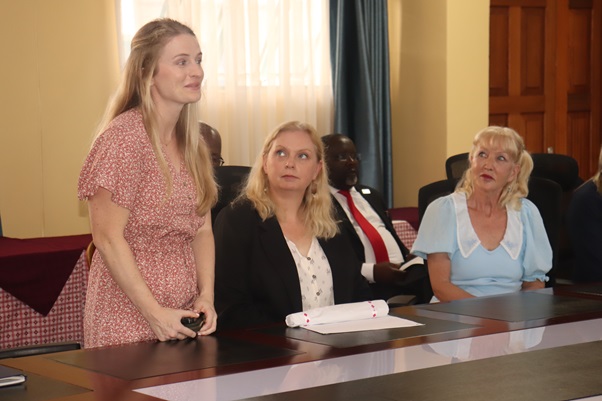 The team lead, Janet Hankins speaking at the meeting.
The team lead, Janet Hankins speaking at the meeting.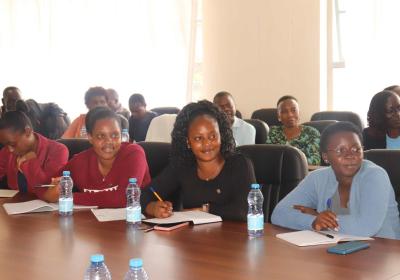
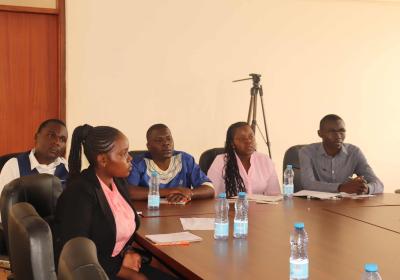

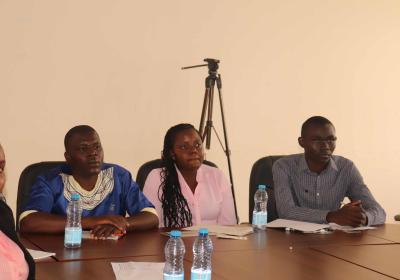
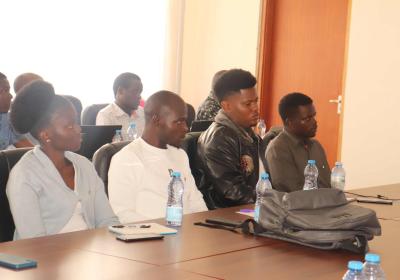

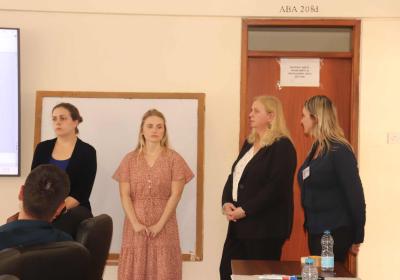
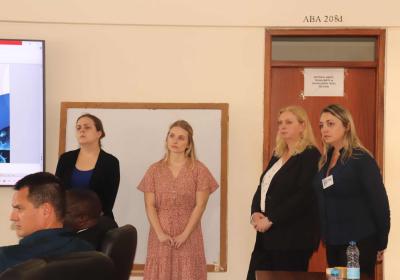

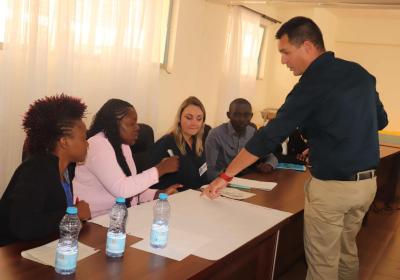
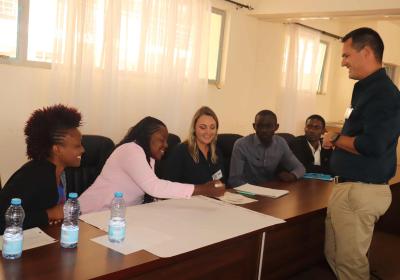
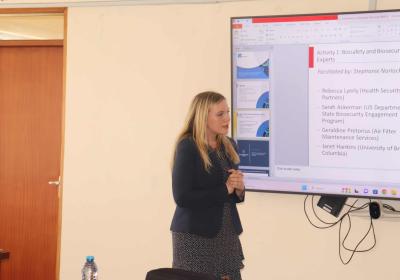

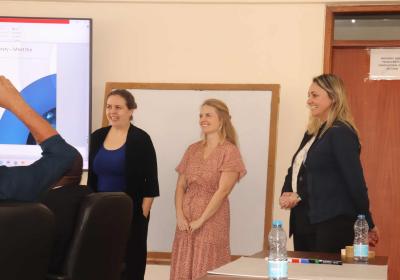

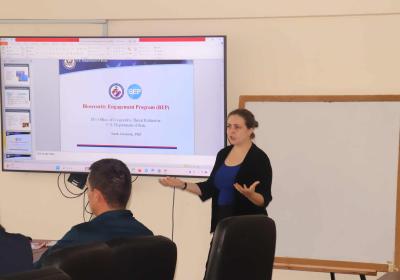
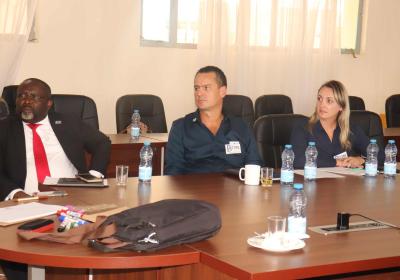

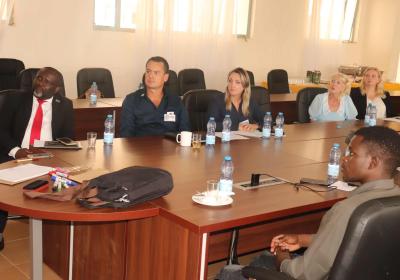
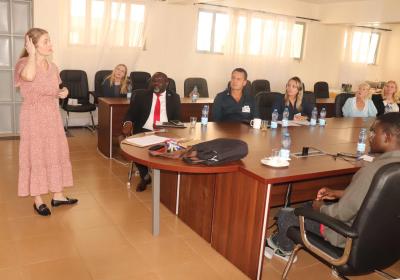

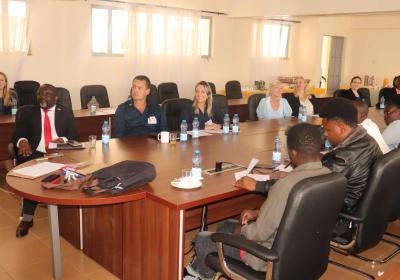


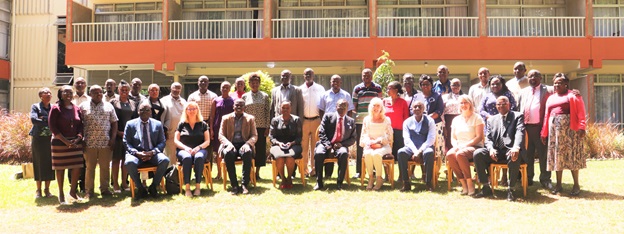 Participants at the Biosafety and Biosecurity workshop, Golf Hotel Kakamega.
Participants at the Biosafety and Biosecurity workshop, Golf Hotel Kakamega.